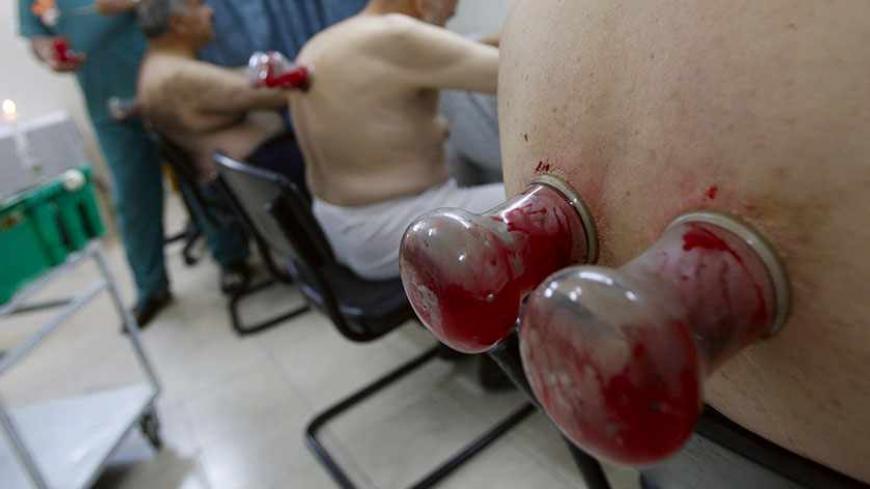Iraqis rely on custom and tradition not only when it comes to their religious beliefs but also to their earthly needs, such as medical treatment. While undergoing therapies, they frequently invoke saints and clutch talismans associated with witchcraft or assorted popular beliefs. Ignoring modern treatment techniques, a number of Iraqis continue to visit shops that offer hijama therapy — a traditional treatment in which the skin is punctured with small incisions so blood can be extracted using suction cups. Proprietors of these establishments, found throughout Iraq in neighborhoods and markets, do not require permits or medical licensing.
According to medical reference books and practitioners, the purpose behind hijama is the removal of old blood cells considered harmful to the body so new cells can replace them. One of the reasons behind Iraqis' trust in hijama therapy is the cultural legacy of this kind of treatment, which some link to religious beliefs. This makes hijama therapy a sacred method for preserving health among believers.



